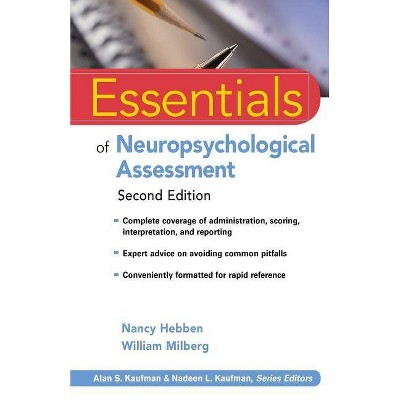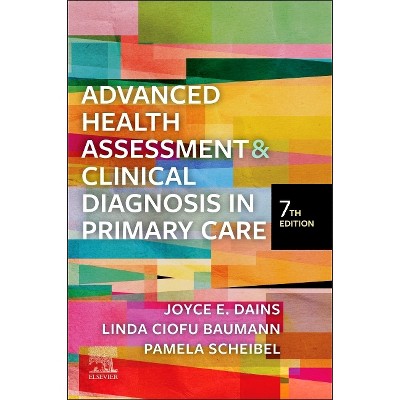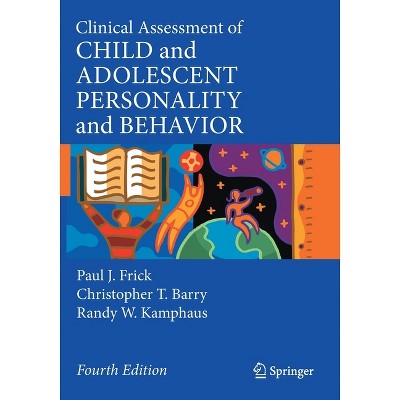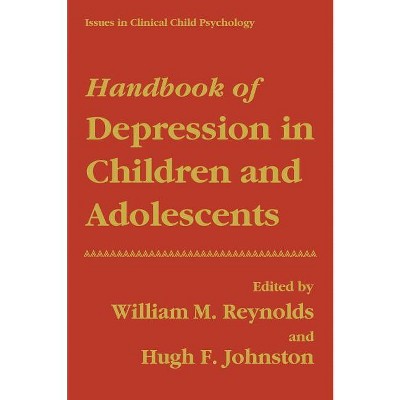Sponsored

Principles of Neuropsychological Assessment with Hispanics - (Issues of Diversity in Clinical Neuropsychology) by Antolin M Llorente (Hardcover)
In Stock
Sponsored
About this item
Highlights
- Here is the first volume of a new series that explores diversity, culture, and ethnicity and their impact on brain function.
- Author(s): Antolin M Llorente
- 234 Pages
- Psychology, Neuropsychology
- Series Name: Issues of Diversity in Clinical Neuropsychology
Description
About the Book
Research-based evidence links the impact of Hispanic culture to neurological function. Articles, written by experts from the life and social sciences, explore key factors such as acculturation, assimilation, cultural identity, and migration patterns.
Book Synopsis
Here is the first volume of a new series that explores diversity, culture, and ethnicity and their impact on brain function. Each volume will provide a forum to examine and explore the influences of culture from both theoretical and applied viewpoints. Given that demographers predict that Hispanics will become the single largest ethnic group in the United States within a generation, the premier volume of this series deals with Hispanic populations. It features research-based evidence on the impact of Hispanic culture on brain-behavior relationships. Articles explore key factors and issues, such as acculturation, assimilation, cultural identity, and migration patterns. Clinical issues, such as competence and minimal standards and novel approaches for assessments of Hispanic populations, are discussed in detail. Neuropsychologists, psychologists, and psychiatrists will discover new findings and gain fascinating perspectives from many distinct disciplines.
From the Back Cover
The inaugural volume in the Issues of Diversity in Clinical Neuropsychology series, Principles of Neuropsychological Assessment with Hispanics sheds needed light on challenges specific to assessing members of this growing, diverse population. Beginning with evidence-based findings revealing intricate nonlinear relationships between culture and the brain, Antolin M. Llorente and a team of eight experts explore finely nuanced constructs of culture, ethnicity, race, and language among Hispanics in neurobehavioral and neurocognitive terms. The authors ably balance theory, research, and practical applications, and give ample space to ethical issues in the assessment of Latinos, indicating the ongoing need for bias-free procedures so that evaluations--and the treatment interventions that they generate--are accurate and valid.
In-depth coverage of:
- Acculturation and assimilation
- Language, bilingualism, and multilingualism
- Cultural and ethnic identity
- Patterns of migration and immigration
as they affect core practical areas, including:
- Competence
- Minimal standards
- Test development and norms
- Psychopathology and rehabilitation.
Synthesizing the state of an evolving field and a highly heterogeneous subject group, this book is bound to appeal to a wide range of mental health professionals, including clinical neuropsychologists, clinical and educational psychologists, psychiatrists, social workers and other mental health professionals.
Review Quotes
From the reviews:
"This volume is quite timely and clinically relevant considering that the Hispanic/Latino population is the largest and fastest growing racial/ethnic minority group in the United States ... . In summary, Principles of Neuropsychological Assessment With Hispanics: Theoretical Foundations and Clinical Practice is an essential reading for any neuropsychologist conducting research or clinical evaluations with Hispanic adults and/or children ... and for professionals in related disciplines, as well as for graduate and postgraduate training in clinical neuropsychology." (Monica Rivera Mindt, International Neuropsychological Society, Vol. 15, 2009)














![Diversity Issues in the USA - ([Diversity, Media, and Law]) by Melanie Kreitler & Greta Olson (Paperback)](https://target.scene7.com/is/image/Target/GUEST_b3d44885-ecb9-4e1a-a8c8-b3f278e6d8e6)


